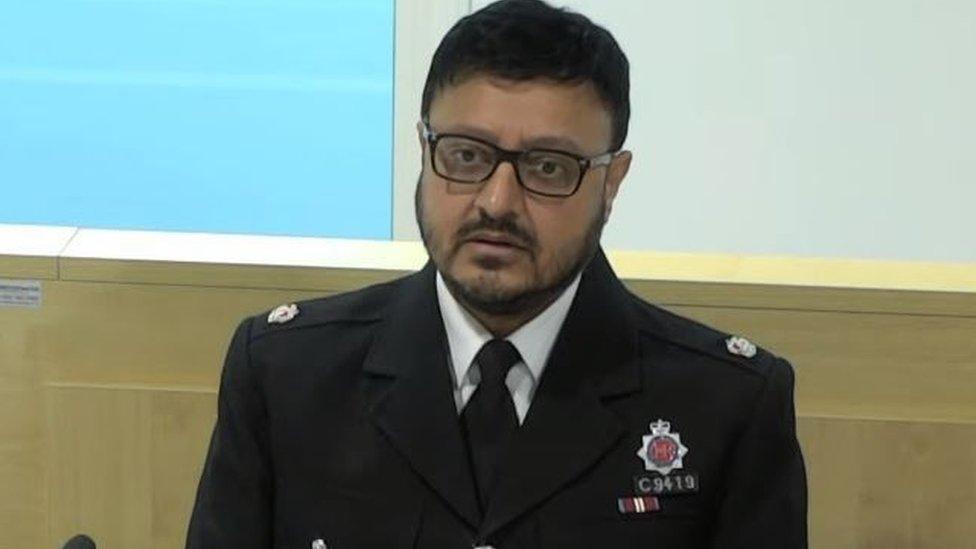Manchester Arena Inquiry: Bomb scene 'not suitable' for treating victims
- Published
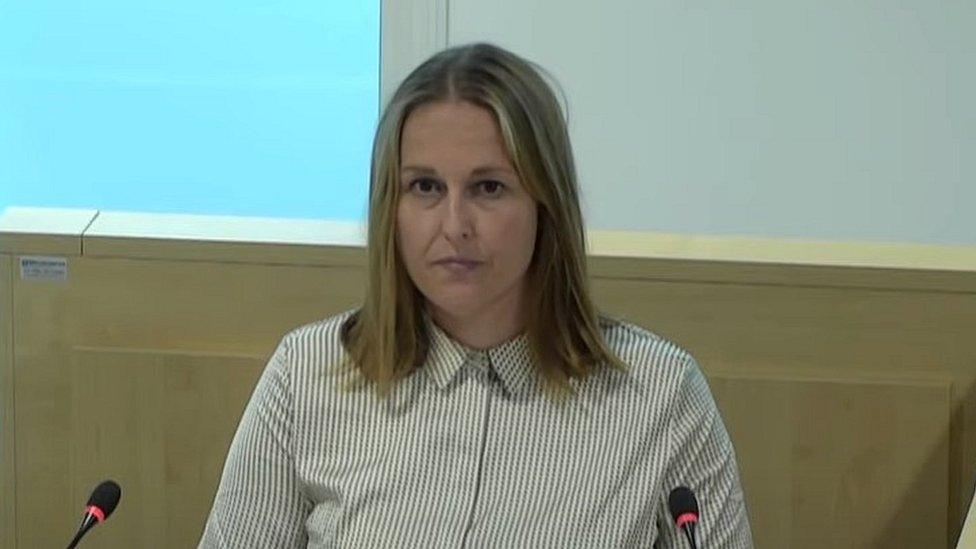
Specialist paramedic Lea Vaughan described the blast scene as "deeply shocking"
A paramedic who treated victims of the Manchester Arena bombing has told an inquiry it was "not suitable" to treat casualties at the blast scene.
Lea Vaughan was one of only three paramedics to enter the foyer area, where the device was detonated.
The inquiry heard they dealt with 26 of the most seriously injured people.
Ms Vaughan said it was thought best to take those who were hurt away from the area to a place of safety as quickly as possible.
Twenty-two people were killed and hundreds more injured when suicide bomber Salman Abedi detonated the bomb at the end of an Ariana Grande concert on 22 May 2017.
The inquiry heard Ms Vaughan was a member of North West Ambulance Service's (NWAS) Hazardous Area Response Team, which is specially trained to respond to major incidents.
She described entering the foyer area at 23:15 BST, about 45 minutes after the blast, as "deeply shocking".
Ms Vaughan told the public inquiry into the atrocity it was dark and harder to identify injuries due to "a hazy atmosphere from dust or smoke".
She said it was not practical to have more paramedics in the foyer to start treating casualties because of the impact of the blast.
"It wasn't a place you could treat a patient. It wasn't suitable. The best option was to extricate patients to a place of safety as quickly as humanly possible and we did that," she said.

Twenty-two people were killed in the May 2017 bombing
Although Ms Vaughan said she never felt overwhelmed, she agreed that having more members of the team in the foyer would have led to some patients being triaged and moved more quickly.
She also agreed casualties would have been taken out of the foyer faster if the fire and rescue service had been present.
Many of the most critically injured were carried away on makeshift stretchers such as advertising hoardings and metal barriers, before being treated by paramedics and doctors on the concourse of Victoria Train Station.
"The way we thought is we'll get the patients from A to B as quickly as we can - and however we can - so my colleagues can provide them with the life-saving treatment that they need," Ms Vaughan said.
Praising Ms Vaughan, the inquiry's chairman Sir John Saunders said what she faced "must be utterly horrific and I'm sure everyone is very grateful for what you did".
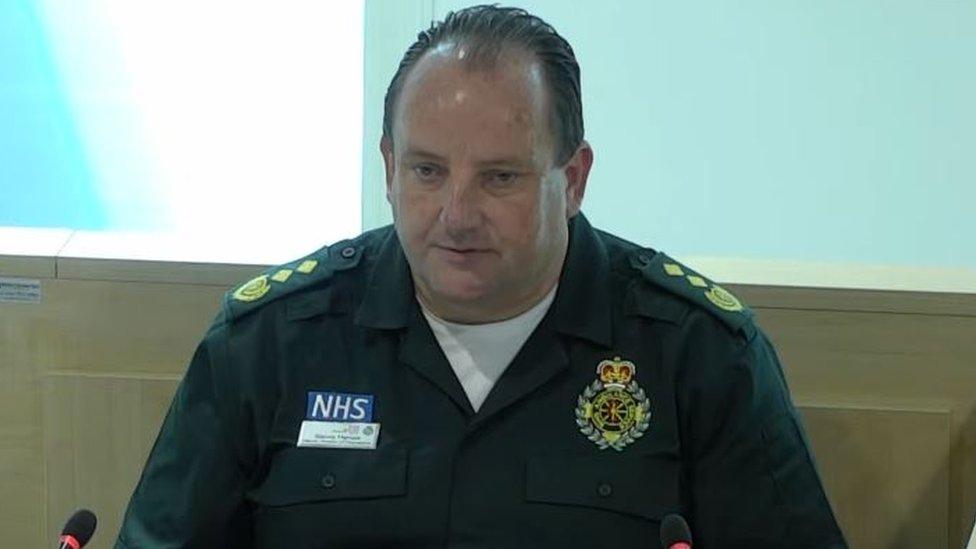
Steve Hynes was at home and off-duty on the night of the attack
The inquiry also heard from NWAS deputy director of operations Steve Hynes, who accepted he did not follow policy when he decided to self-deploy to the scene from home.
Mr Hynes, who took over the role of operational commander when he arrived at about midnight, said it was "quite evident" the fire and rescue service were not on the scene and the multi-agency response known as the Joint Emergency Services Interoperability Programme (Jesip) had failed.
The inquiry heard the first huddle between emergency services, recommended under the Jesip principles, was not held until 00:55, two hours and 24 minutes after the explosion happened.
Mr Hynes admitted this should have happened "much sooner".
The inquiry continues.

Why not follow BBC North West on Facebook, external, Twitter, external and Instagram, external? You can also send story ideas to northwest.newsonline@bbc.co.uk
Related topics
- Published7 June 2021
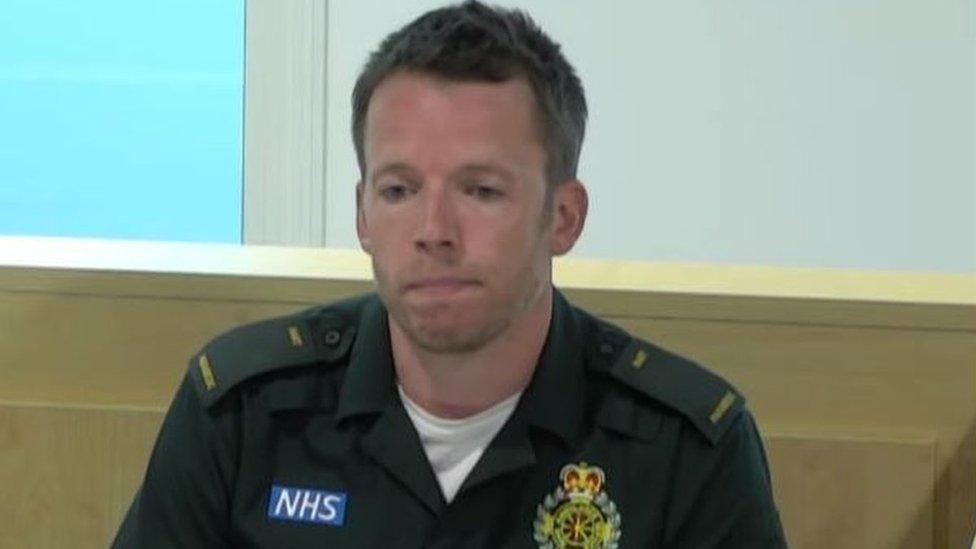
- Published27 May 2021
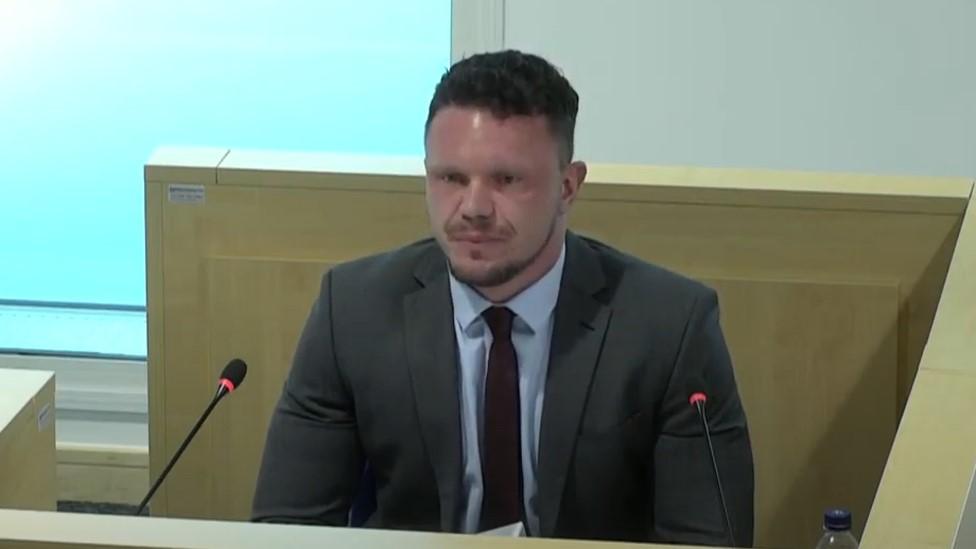
- Published26 May 2021
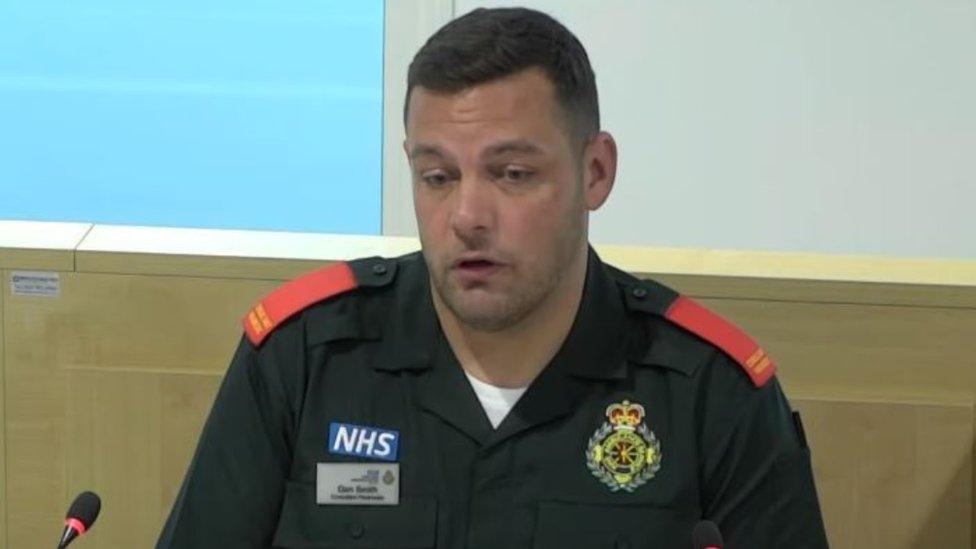
- Published25 May 2021
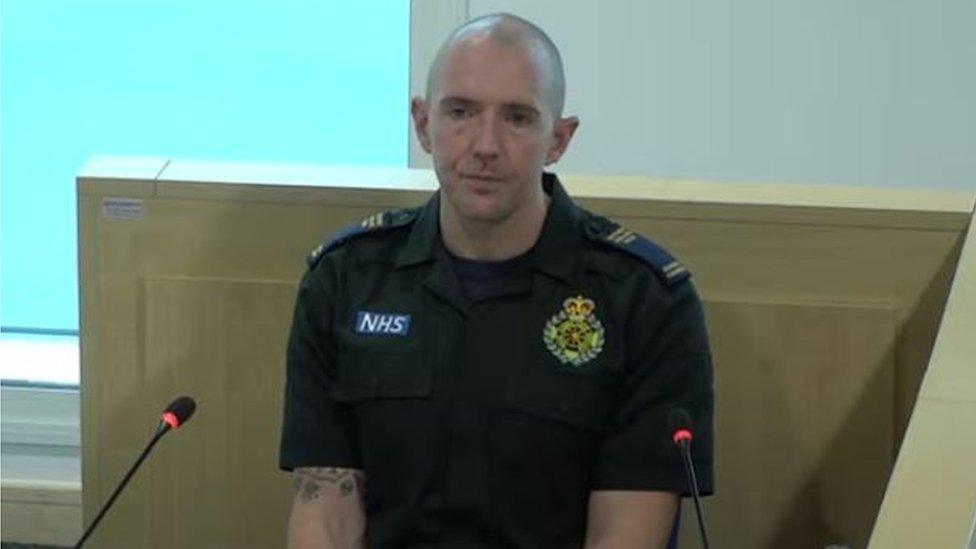
- Published24 May 2021

- Published20 May 2021
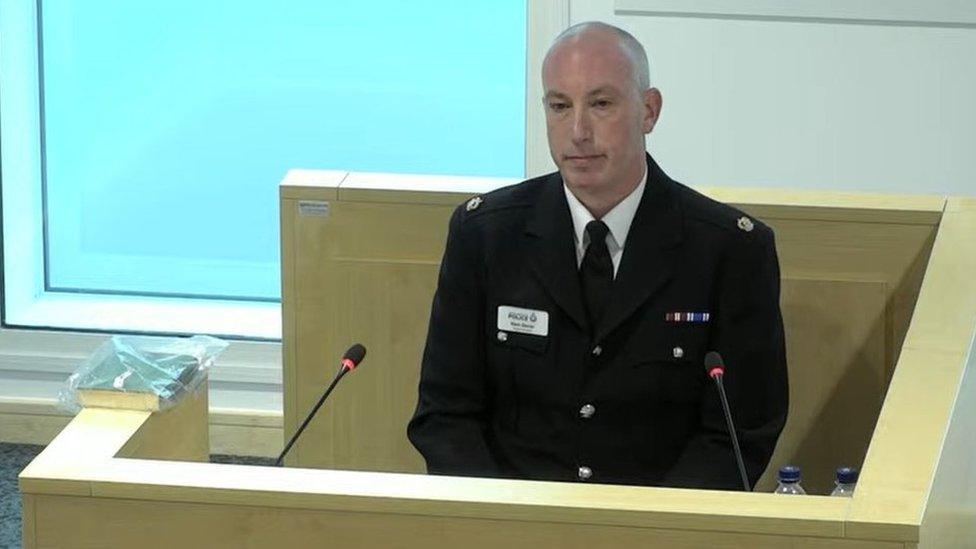
- Published18 May 2021
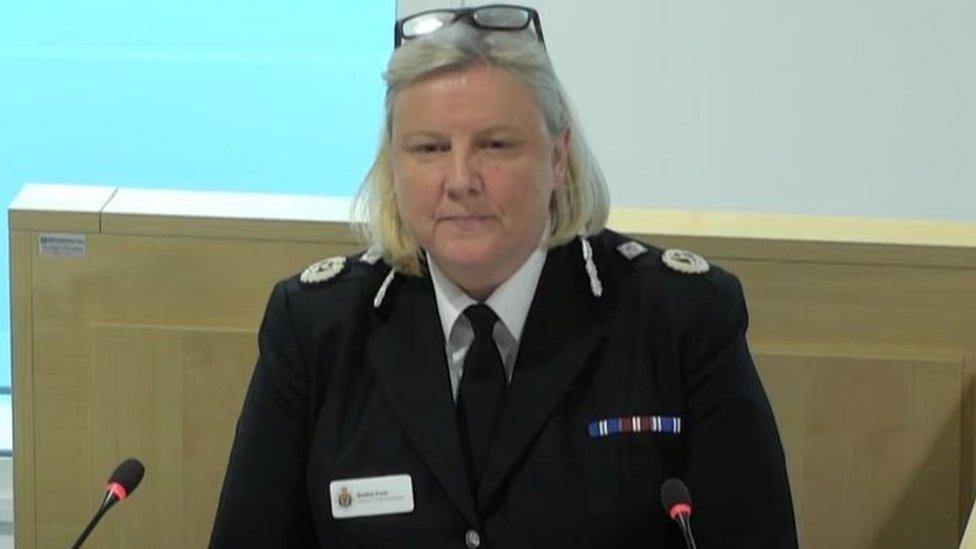
- Published17 May 2021
